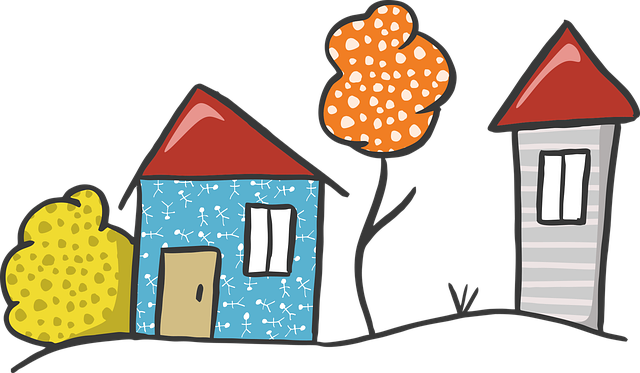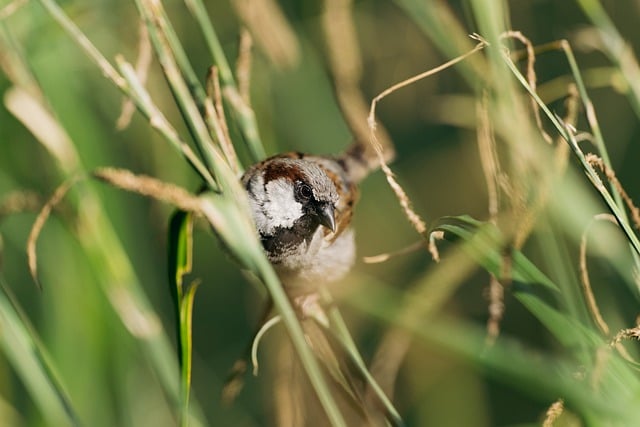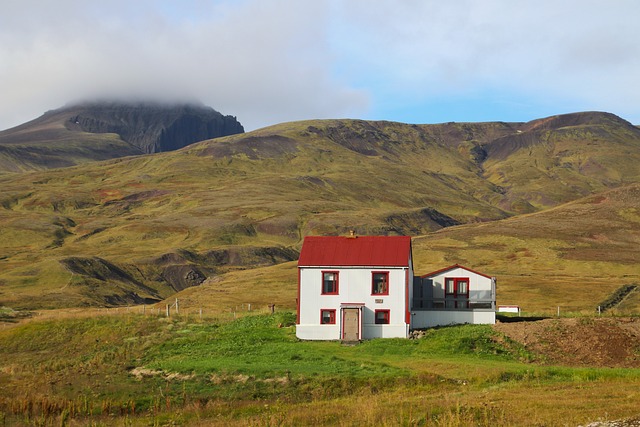House sitting is a cost-effective travel accommodation option for snowbirds and nomads, offering a genuine local living experience while avoiding the financial strain of traditional rentals. This mutually beneficial arrangement involves caring for a homeowner's residence and property in exchange for free housing, ranging from a few months to an entire season. It's ideal for those looking to extend their travels without the expense of hotels or temporary rentals, providing a chance to immerse themselves in local communities and utilize amenities, fostering genuine connections with residents. Successful house sitters are reliable, skilled, and have a track record of managing properties and pets responsibly, which can be demonstrated through comprehensive profiles on dedicated online platforms. They should also be well-versed in the legal considerations of house sitting across different jurisdictions to ensure all arrangements comply with local housing laws, avoiding any potential issues that could arise during their stay. This approach allows for a sustainable and enriching travel experience, combining the comforts of home with the excitement of exploration in various destinations. House sitting thus stands out as a viable long-term accommodation solution for travelers who wish to conserve funds while enjoying the benefits of living like a local.
Exploring the world without the hefty price tag of traditional travel is a dream come true for many. Enter house sitting, an innovative solution that caters to the wanderlust of ‘snowbirds’ and nomadic explorers alike. This article delves into the nuances of house sitting, offering insights on how it can be a cost-effective and enriching travel strategy. We’ll explore the myriad benefits for those looking to extend their travel horizons, including firsthand accounts from seasoned snowbirds. Moreover, we’ll guide you through the essential steps to secure a house sitting opportunity, whether you’re a newcomer or a veteran traveler. Additionally, we’ll address the legal aspects to ensure your global house-sitting adventures are both responsible and compliant with local laws. Join us as we unpack the practicalities and rewards of house sitting for those who chase warmer climates or the next horizon.
- Understanding House Sitting: A Cost-Effective Travel Solution for Snowbirds and Nomads
- The Benefits of House Sitting for Long-Term Travel: A Snowbird's Perspective
- How to Secure a House Sitting Gig as a Snowbird or Traveler: Tips and Strategies
- Preparing for Your First House Sit: Essential Considerations for Responsible Snowbird and Traveler House Sitters
- Navigating the Legalities: Understanding House Sitting Laws and Contracts Across Different Jurisdictions
Understanding House Sitting: A Cost-Effective Travel Solution for Snowbirds and Nomads

House sitting presents a unique and cost-effective travel solution for snowbirds and nomads seeking to explore new destinations without the high costs associated with traditional accommodations. By opting for house sitting, individuals can live in another person’s home while they are away, offering a level of authenticity and local living experience that is hard to replicate. Snowbirds, those who migrate seasonally to escape harsh winters or extreme heat, find immense value in this arrangement, as it allows them to maintain a stable living environment and save money that would otherwise be spent on rentals or hotels. Similarly, travelers, including nomads who wish to extend their travels indefinitely, can benefit from the stability and comfort of a home while they traverse different regions. House sitting not only reduces the financial burden but also provides a sense of responsibility and community connection, as sitters often take care of pets and gardens, ensuring the home remains just as it was left. This symbiotic relationship is mutually advantageous, fostering trust and exchange that can last for years, making house sitting an attractive option in the travel toolkit for those who love to roam without the constraints of traditional lodging costs.
The Benefits of House Sitting for Long-Term Travel: A Snowbird's Perspective

House sitting offers a unique solution for snowbirds and long-term travelers seeking to extend their travels without the constraints of temporary accommodations. For those unfamiliar, house sitting involves taking responsibility for a homeowner’s property while they are away, which can span several months or an entire season. This arrangement comes with a multitude of benefits that align perfectly with the snowbird lifestyle.
Firstly, house sitting allows travelers to immerse themselves in local communities by staying in residential neighborhoods rather than transient lodging. This level of immersion provides a deeper cultural experience, as one lives like a local, with access to local amenities and the opportunity to form community connections. Additionally, house sitting can significantly reduce travel expenses, as snowbirds often exchange their skills for free accommodation, saving on rental costs and other housing-related expenses. This cost-effective aspect is particularly appealing for those looking to extend their travel duration without depleting their savings.
Furthermore, with house sitting, snowbirds can enjoy the comforts of home, including a fully equipped kitchen, personal space, and often, pets. The stability that comes from not packing up every few days or weeks allows for a more relaxed pace of travel, enabling deeper exploration and enjoyment of each destination. House sitters also benefit from the variety that comes with looking after different homes in various locations, from urban apartments to rural houses, each offering its own unique set of experiences and perspectives. This variety enriches the snowbird’s journey, making each new house sit a fresh adventure.
How to Secure a House Sitting Gig as a Snowbird or Traveler: Tips and Strategies

House sitting presents a unique opportunity for snowbirds and travelers seeking to extend their stays in desirable locations without the costs associated with traditional accommodations. To secure a house-sitting gig, it’s crucial to build a strong profile that showcases your reliability and experience. Begin by creating detailed profiles on reputable house-sitting platforms, emphasizing your skills, references, and any previous house-sitting experiences. Highlight your familiarity with various home maintenance tasks, pet care expertise, and technology proficiency, as many snowbirds and travelers look for sitters who can handle the responsibilities of their homes in their absence.
Networking plays a significant role in this endeavor. Engage with local community groups and social media forums related to travel and house sitting. Share your experiences, offer advice, and connect with potential homeowners. Joining house-sitting specific communities can also increase your visibility and credibility. Additionally, consider enrolling in relevant courses or workshops that certify your skills, adding another layer of trustworthiness to your profile. By demonstrating a commitment to responsible and attentive care for properties and pets, you’ll position yourself as an ideal candidate for snowbirds and travelers seeking peace of mind while away.
Preparing for Your First House Sit: Essential Considerations for Responsible Snowbird and Traveler House Sitters

House sitting for snowbirds and travelers is a mutually beneficial arrangement that requires careful preparation, responsibility, and trust. As you embark on your first house-sitting assignment, it’s crucial to familiarize yourself with the homeowner’s routines, systems, and expectations. Before accepting any house-sitting opportunity, ensure you have a clear understanding of the responsibilities involved. This includes maintaining the property, caring for pets or plants, managing mail and package deliveries, and ensuring the home remains secure. Take the time to thoroughly read the house manual provided by the homeowner; it often contains vital information about the home’s operations, from heating and cooling systems to alarm codes and utility management.
Familiarize yourself with local resources such as emergency contacts, veterinarians for pet care, and nearby neighbors who can assist in an emergency. Engage in open communication with the homeowner before your arrival to address any concerns or questions you may have. Establishing a rapport with the owner can ease the transition and provide peace of mind for both parties. Additionally, ensure all personal belongings are removed from the property, and make it a point to document the condition of items and the property upon your arrival. This documentation serves as a reference point should there be any disputes about the state of the home or its contents upon the homeowner’s return. House sitting is a significant responsibility that requires attention to detail, adaptability, and a commitment to preserving the homeowner’s lifestyle while they are away. By preparing thoroughly and approaching the role with care and professionalism, snowbirds and travelers can enjoy their journeys with the assurance that their homes are being well looked after.
Navigating the Legalities: Understanding House Sitting Laws and Contracts Across Different Jurisdictions

When considering house sitting as a traveler or snowbird, it’s crucial to navigate the legalities associated with the practice across different jurisdictions. House sitters must be well-versed in the laws that govern tenancy, property rights, and contractual agreements specific to each region they might be staying. These laws can vary significantly, influencing the legality of a house sitting arrangement and the responsibilities of both parties involved. It’s essential to understand that a house sitter is not typically considered a tenant, as their role is more akin to looking after property on behalf of the owner, often under an agreement that outlines caretaking duties and expectations. This distinction is important when reviewing local housing laws and regulations, which may have specific requirements regarding occupancy, lease agreements, and the rights of occupants.
To ensure compliance with these varying legal frameworks, house sitters should carefully read and understand all contracts and agreements provided by the property owners. These documents often contain clauses that define the terms of the arrangement, including the scope of caretaking responsibilities, duration of stay, and privacy expectations. Additionally, it’s advisable to seek legal counsel when in doubt, particularly if the house sitting engagement involves cross-border travel where international laws may also apply. By doing so, both homeowners and house sitters can establish secure and mutually beneficial arrangements, allowing for peace of mind during extended absences or travel adventures. Understanding these legalities is a cornerstone of responsible house sitting and helps to mitigate any potential issues that could arise from a lack of knowledge regarding local laws and contractual obligations.
house sitting offers a mutually beneficial arrangement for both property owners seeking peace of mind and travelers, particularly snowbirds, looking for an immersive and cost-effective travel experience. This article has outlined the multifaceted nature of house sitting, from its role as a long-term travel solution to the practical steps needed to secure a house sit. It’s clear that with careful consideration of the responsibilities and legal aspects involved, house sitting can be a rewarding way to explore new environments while maintaining a home’s care and continuity. As snowbirds and nomadic travelers continue to seek out innovative ways to navigate their globetrotting lifestyles, house sitting remains an attractive option, blending the comforts of home with the thrill of travel.






